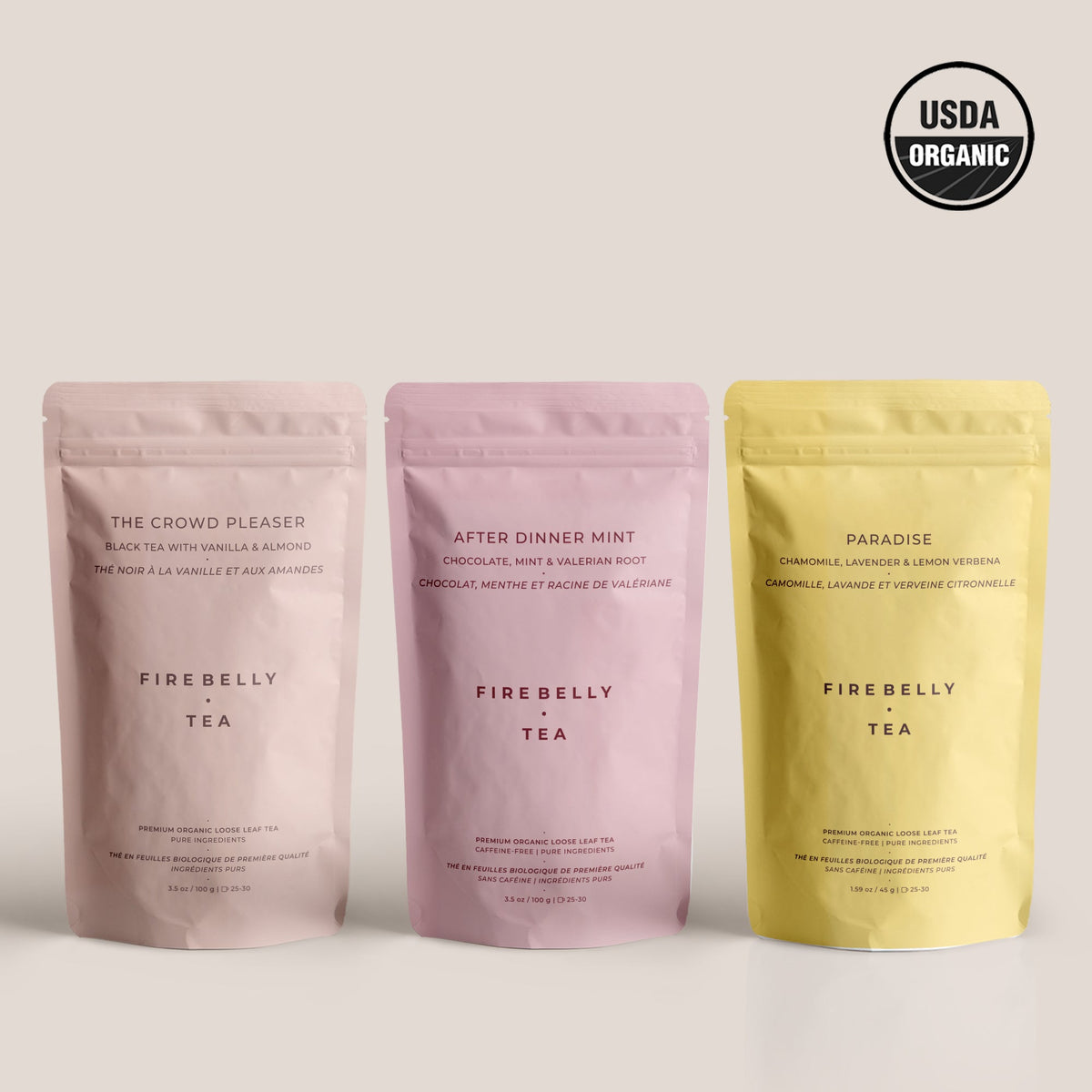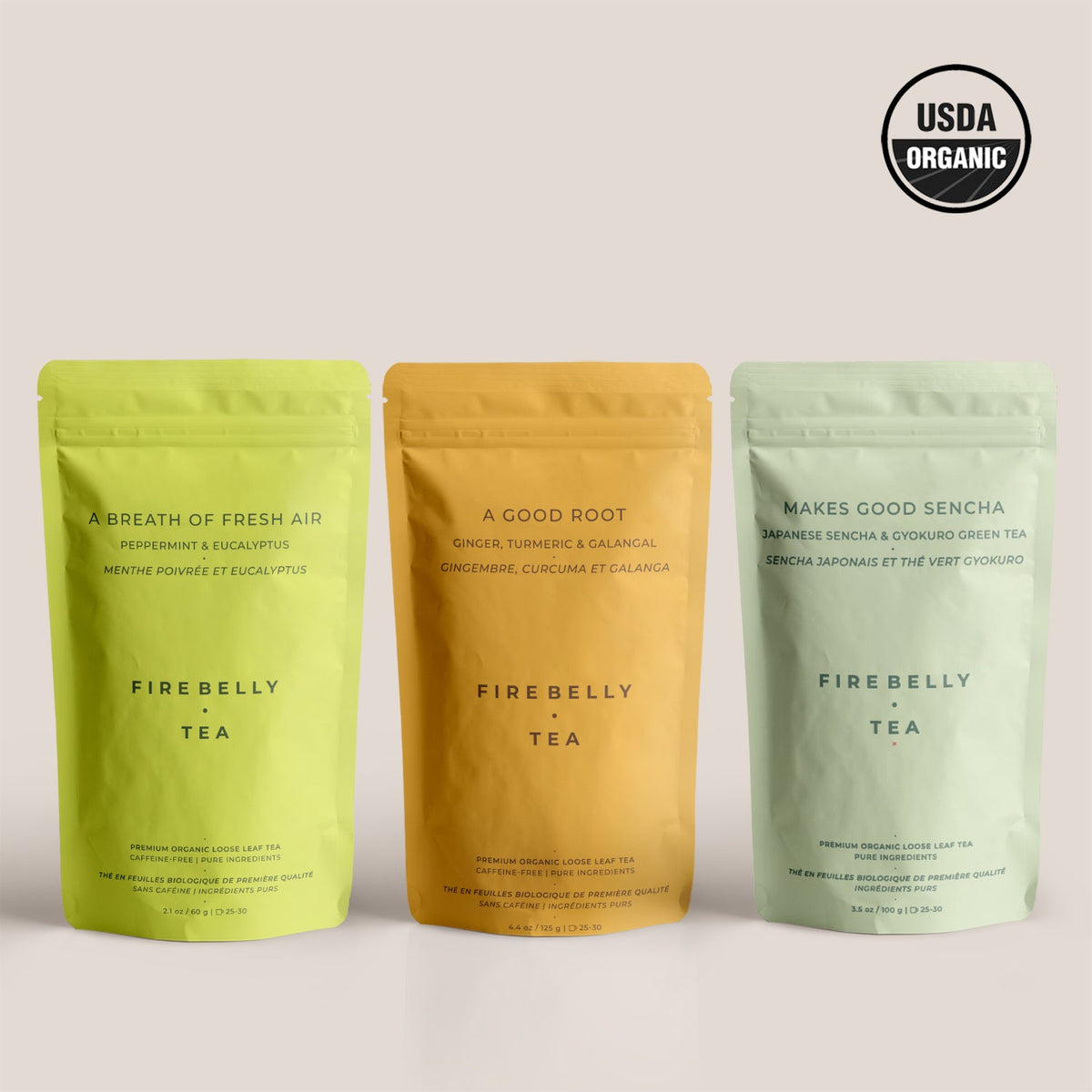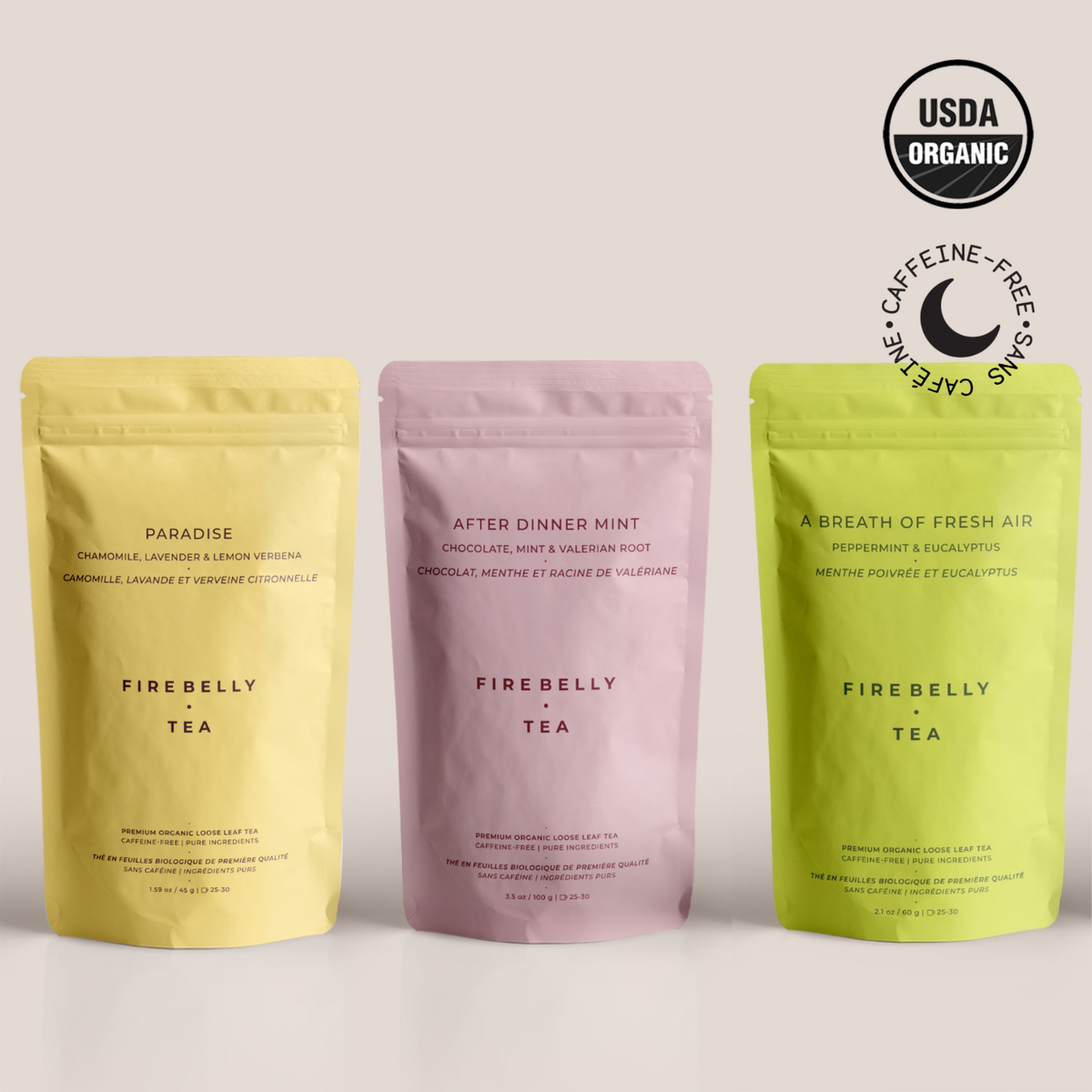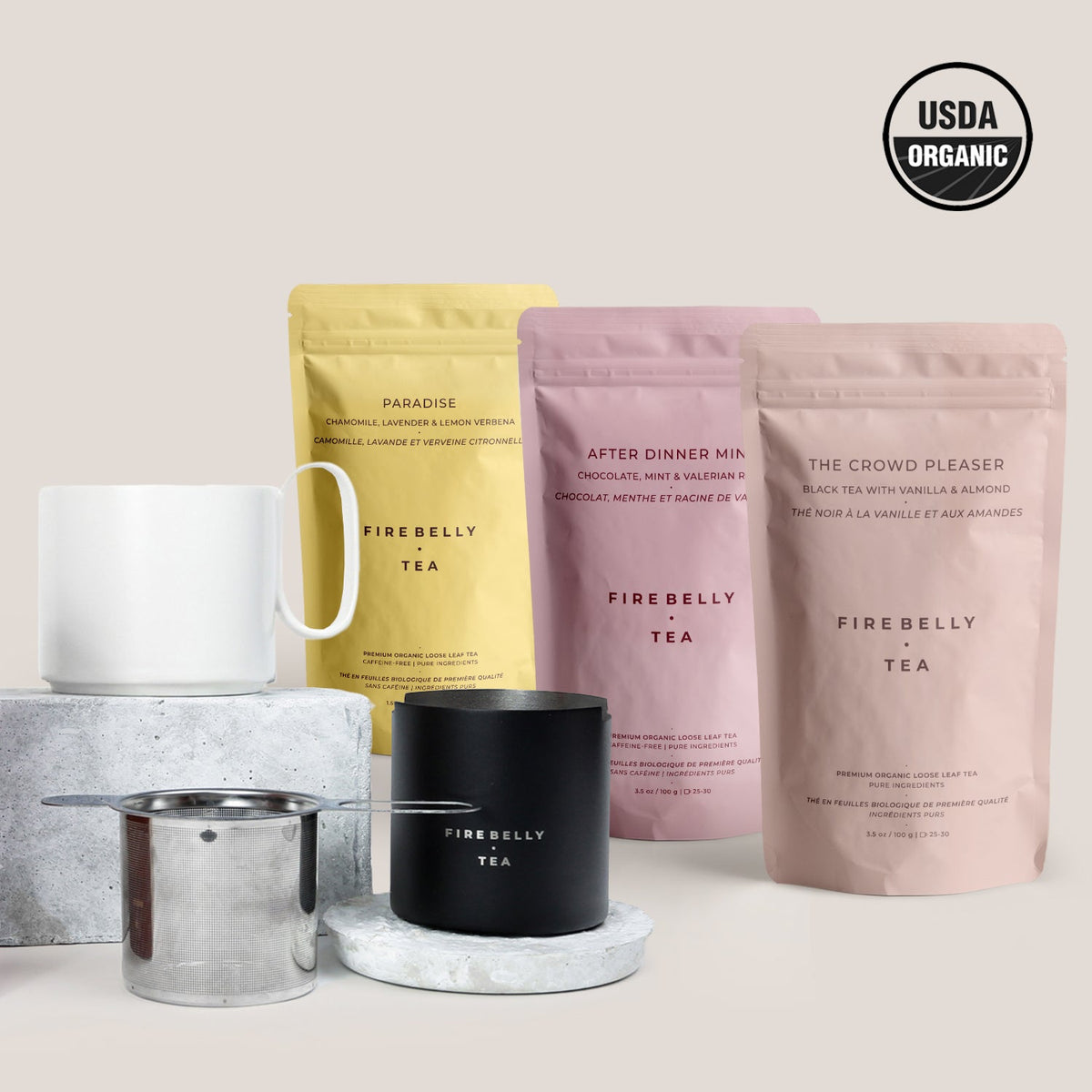For centuries, cinnamon has been revered for its distinctive sweet and spicy aroma and flavor and its potential health benefits. Cinnamon can offer many advantages that contribute to your overall health and well-being when infused into a soothing cup of tea. Not to mention, the scent of cinnamon can fill a home with a cozy and inviting feeling that's sure to please!
From its potential to regulate blood sugar levels to its anti-inflammatory properties, cinnamon tea has caught the attention of both health enthusiasts and medical researchers for its potential positive impact on various aspects of health. In this article, we'll explore the many benefits of cinnamon tea and how it can help you achieve a healthier and more balanced lifestyle.
All About Cinnamon
Considered by many to be a multifaceted medicinal plant, cinnamon is a cherished ancient spice known chiefly for its aromatic allure and versatility in a wide array of culinary dishes. Let's take a look at the more common cinnamon varieties that are available.
Cinnamon Bark and Harvesting:
From ground cinnamon to cinnamon sticks, all that cinnamony goodness is directly derived from the inner bark of the cinnamon tree (Cinnamomum). Getting the tree bark to the spice rack is a meticulous process. The bark is carefully harvested, peeled into thin strips, and allowed to dry. As it dries, the strips curl into what we know as cinnamon sticks, commonly found in spice racks in kitchens worldwide or as a decorative touch to a spicy pumpkin chai latte.
This lengthy and necessary process to harvest cinnamon not only intensifies its distinct aroma but also helps develop its rich flavor profile, a delicate balance of sweetness and spiciness. Here are the two main versions of this fragrant spice that you can find at your local grocery store:
Ceylon Cinnamon (Cinnamomum verum):
Ceylon cinnamon, often known as "true cinnamon," is praised for its mild yet refined flavor. Native to Sri Lanka, this variety has a delicate and slightly sweet taste, making it a preferred choice in dishes where subtlety is required. Ceylon cinnamon boasts lower levels of coumarin, a naturally occurring compound that may be harmful in large amounts, making it a safer option for regular consumption.
Cassia Cinnamon (Cinnamomum cassia):
Cassia cinnamon, originating from China and commonly found in North America, Europe, and other regions, is a bolder and more robust cinnamon flavor than Ceylon. It has a powerful aroma and strong and familiar scent widely recognized as a cinnamon powder or as a cinnamon stick. Cassia cinnamon typically has a thicker bark and a more intense spiciness. Most people know this version since it is the star ingredient for all the delicious baked goods, spicy dishes, and warm beverages we enjoy during the autumn and winter.
What Are The Health Benefits of Drinking Cinnamon & Tea?
Beyond being a sensory-pleasing experience, cinnamon tea gives an exceptional health kick. The benefits of regularly drinking cinnamon tea range from aiding in blood sugar regulation to combating oxidative stress. Cinnamon also has anti-inflammatory and antioxidant properties.
However, you may not get the same benefits from a cinnamon stick in your latte as from having a warm cup of cinnamon-infused tea. The specific health benefits vary between different cinnamon extracts due to variations in their chemical compositions. What's important to know is that cinnamon is loaded with benefits - no matter which form you have it in. Let's explore all the healthy goodness you can get when you drink cinnamon tea.
#1. Lower Blood Sugar Levels and Diabetes Management
One of the most well-known and well-documented health benefits of cinnamon tea is its potential to help regulate blood sugar levels. Cinnamon contains bioactive compounds that can mimic the effects of insulin, the hormone responsible for transporting sugar from the bloodstream into cells. This action can lead to improved glucose metabolism and low blood sugar levels.
Research has shown that drinking cinnamon tea regularly may help enhance insulin sensitivity and decrease insulin resistance. This means cinnamon may be a potential complementary approach to managing type 2 diabetes. Including cinnamon tea in a balanced diet and healthy lifestyle may contribute to lower blood sugar levels and a reduced risk of complications associated with diabetes.
#2. Antioxidant and Anti-Inflammatory Compounds
Cinnamon is rich in antioxidants. These compounds help combat oxidative stress and protect your body from damage caused by free radicals, reducing the growth of cancer cells. Free radicals are unstable molecules that can lead to chronic inflammation, contributing to several chronic diseases, including heart disease, cancer, and neurodegenerative disorders like Alzheimer's.
The antioxidants found in cinnamon, such as polyphenols and flavonoids, also help neutralize these harmful free radicals. The result is reduced inflammation in the body and a better functioning immune system for overall health. Adding cinnamon tea to your daily routine will give your body a natural source of antioxidants that may help prevent and manage these inflammatory conditions.
#3. Better Heart Health
Cinnamon tea can also promote heart health. Cinnamon may help reduce inflammation, lower blood pressure, and help reduce LDL cholesterol levels. The compounds in cinnamon may inhibit the accumulation of fatty acids and decrease the absorption of excess cholesterol in the intestines. Excess cholesterol levels are associated with restricted blood flow due to blockage, blood clots, and an increased risk of heart disease.
Furthermore, cinnamon teas may contain anti-inflammatory properties that can benefit the cardiovascular system by reducing inflammation in blood vessels, enhancing blood circulation, and reducing the risk of heart disease.
#4. Digestive Aid
Cinnamon tea has been used traditionally as a natural remedy for over 5,000 years to help with better digestion. It can help alleviate digestive discomfort caused by indigestion, bloating, and gas. Cinnamon tea may stimulate the production of digestive enzymes, which play a crucial role in breaking down food and the nutrients to be absorbed more easily by the body. Cinnamon tea combined with healthy food choices such as lean meat, fresh fruit, and vegetables can contribute to better nutrient utilization and improve your body's overall digestion.
#5. Weight Management and Weight Loss Benefits
Studies have linked cinnamon intake with weight loss. Cinnamon contains blood sugar-lowering effects that can also affect metabolism, which are important factors in controlling and lowering body fat. By stabilizing blood sugar levels, cinnamon may help reduce sugar cravings and prevent excessive energy spikes and crashes that can lead to overeating. Since cinnamon tea already has a naturally sweet undertone, adding more sugar to your cup is unnecessary.
Cinnamon may also have an impact on fat metabolism. Studies suggest that cinnamon could help burn belly fat by increasing the expression of genes and proteins involved in fat metabolism. While drinking a cup of cinnamon tea alone is not a magic solution for weight loss, adding cinnamon tea to a balanced and healthy diet with a regular exercise routine could support achieving your weight goals.
#6. Helps Relieve Menstrual Cramps
One of the many benefits of cinnamon tea is that it is a natural remedy for alleviating menstrual symptoms. A warm cup of cinnamon tea is a great way to offer a soothing and comforting solution for many women. Cinnamon extract has many anti-inflammatory properties, particularly its ability to inhibit the production of prostaglandins, compounds that trigger uterine contractions that contribute to menstrual pain. Cinnamon tea contains the same properties and may provide relief from the intensity of cramps.
Another study found that cinnamon extract helped to reduce menstrual bleeding and other symptoms such as nausea and vomiting. The study showed that women who increased their cinnamon consumption also experienced significantly less menstrual pain than those who didn't increase their cinnamon intake.
Cinnamon tea may offer similar benefits and provide a healthy relief for menstrual symptoms. Cinnamon's therapeutic compounds are released through the essential oils as they seep into your cup of hot tea. The benefits inside the oils offer a gentle way to reduce discomfort, while the aroma of cinnamon tea provides a sense of relaxation and warmth with every sip.
#7. Cognitive Function
Studies suggest cinnamon is excellent for improved cognitive and brain function. Cinnamon contains compounds that have neuroprotective effects. These compounds may help prevent the buildup of amyloid plaques associated with Alzheimer's disease. Additionally, cinnamon's polyphenol antioxidants and its anti-inflammatory and antibacterial properties can contribute to overall brain health. Reducing oxidative stress and inflammation can help prevent the decline of cognitive function over time.
#8. Better Skin Health
Cinnamon tea is enriched with antioxidants crucial in shielding the skin from oxidative stress, which can occur because of environmental factors such as pollution and UV rays. The antibacterial attributes of cinnamon are effective in combatting the bacteria responsible for acne and other skin infections. Consistent consumption of cinnamon tea stimulates the generation of collagen, contributing to skin that is more resilient and radiantly youthful in appearance.
Possible Side Effects of Cinnamon Tea
Even though consuming cinnamon tea has many benefits, too much cinnamon can cause side effects.
-
Cinnamon allergies: In some individuals, consuming cinnamon oil, powdered cinnamon, ground cinnamon, sticks, or even cinnamon tea may cause symptoms like skin irritation, swelling, or difficulty breathing. If you experience any of these symptoms, it's best to avoid cinnamon tea altogether.
-
Cinnamon varieties: There are different types of cinnamon, such as Cassia, Ceylon, Korintje, and Saigon cinnamon. Ceylon is considered the "true" version of cinnamon, while cassia cinnamon is more common. Cassia contains coumarin, which can harm your liver in excessive quantities. If you plan to consume cinnamon regularly, consider using Ceylon to minimize coumarin intake.
-
Medication interactions: Cinnamon, when consumed in significant amounts, may interact with certain medicines, especially those that affect blood sugar levels. If you're taking medication for diabetes, blood pressure, or any other condition, consult your doctor before incorporating cinnamon tea into your diet.
-
Pregnancy and breastfeeding: Pregnant or breastfeeding individuals should consume cinnamon and cinnamon tea in moderation, as excessive amounts of cinnamon tea may potentially have adverse effects.
Drink Cinnamon Tea For Better Health
If you're looking for delicious flavor and many health benefits all in one cup, consider sipping on cinnamon tea. Cinnamon tea is a great way to help regulate blood sugar levels, provide antioxidant support, and promote better heart health, digestion, weight management, and cognitive function.
That spicy cinnamon tea you enjoy has earned its place not only as a versatile beverage with a range of positive impacts but also as a warm beverage that uplifts the spirits and makes you feel comfy and cozy. Indulge in one of the comforting and healthy cinnamon tea blends like this one or this one, and let's not forget about this one from Firebelly today! Or shop for your favorite tea blend and add cinnamon to it.











